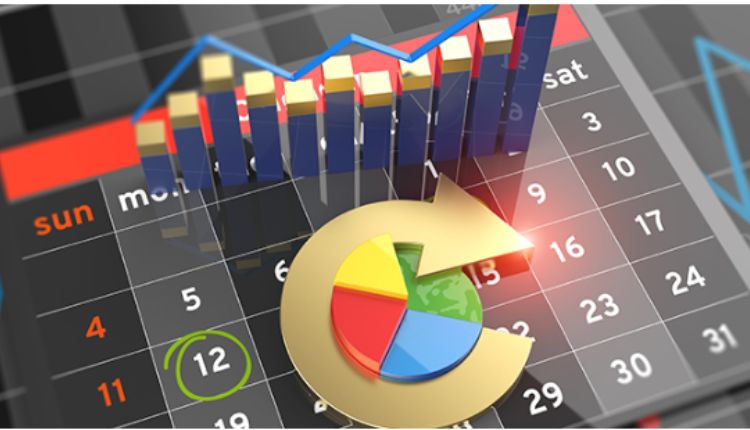Introduction
In the dynamic world of finance, staying informed about economic events is crucial for investors, traders, and policymakers alike. The economic calendar serves as a valuable tool, providing a schedule of upcoming key economic releases, speeches by central bank officials, and other significant events that can impact financial markets. In this article, we will delve into the importance of the economic calendar, explore its various components, and discuss how it can be effectively utilized to make informed decisions. By understanding the economic calendar’s significance, individuals can navigate the financial landscape with greater confidence and adaptability.
I. The Significance Of The Economic Calendar
The economic calendar acts as a compass for market participants, offering a clear picture of the macroeconomic landscape. It provides a roadmap of scheduled economic data releases, such as GDP growth, inflation figures, employment reports, and central bank policy decisions. These events can significantly influence market sentiment, asset prices, and currency movements.
By analyzing the economic calendar, investors and traders gain insights into the health of economies, enabling them to anticipate potential shifts in market trends. For instance, a positive GDP growth announcement might boost investor confidence and lead to increased stock market activity. Conversely, higher-than-expected inflation numbers could trigger concerns about interest rate hikes, leading to a sell-off in bonds and stocks.
II. Components Of The Economic Calendar
The economic calendar encompasses a range of events that impact the financial landscape. Let’s explore some of its key components:
- Economic Indicators: Economic indicators are statistical measures used to assess the overall health and performance of an economy. They include data points such as GDP, inflation rate, consumer spending, industrial production, and trade balance. These indicators provide insights into the current and future state of an economy, helping investors gauge economic conditions and adjust their investment strategies accordingly.
- Central Bank Meetings: Central banks play a crucial role in shaping monetary policy, interest rates, and exchange rate stability. The economic calendar highlights scheduled central bank meetings where policymakers discuss and announce decisions that impact the financial markets. Traders closely monitor these meetings for indications of potential policy changes, as they can significantly influence currency valuations and market sentiment.
- Corporate Earnings Reports: Publicly traded companies regularly release their earnings reports, which provide details about their financial performance over a specific period. The economic calendar incorporates these earnings release dates, enabling investors to track the financial health of individual companies and make informed investment decisions.
- Political Events: Political events, such as elections, government policy announcements, and geopolitical developments, can have far-reaching consequences on financial markets. The economic calendar includes notable political events, allowing market participants to anticipate potential volatility and adjust their strategies accordingly.
III. Effectively Utilizing The Economic Calendar
To harness the full potential of the economic calendar, it is essential to follow a systematic approach. Here are some key considerations for its effective utilization:
- Stay Updated: Regularly check the economic calendar for updates and new event listings. Reliable financial news websites, trading platforms, and economic research providers often offer free access to comprehensive economic calendars.
- Prioritize High-Impact Events: Focus on high-impact events that are likely to cause significant market volatility. These include central bank announcements, major economic data releases, and geopolitical developments. Understanding the potential impact of these events on specific markets can help traders and investors make better-informed decisions.
- Analyze Historical Data: Examine historical market reactions to specific economic events. This analysis can provide insights into how markets have previously responded to similar events, enabling individuals to gauge the potential outcomes and adjust their strategies accordingly.
- Consider Multiple Factors: When evaluating economic events, consider multiple factors such as market expectations, historical data, and prevailing economic conditions. This holistic approach can help identify market opportunities and mitigate risks associated with unforeseen events.
Conclusion
The economic calendar serves as an indispensable tool for investors, traders, and policymakers. By keeping track of key economic releases, central bank meetings, corporate earnings reports, and political events, individuals can gain valuable insights into market trends and make informed decisions. Effectively utilizing the economic calendar involves staying updated, prioritizing high-impact events, analyzing historical data, and considering multiple factors. By adopting a systematic approach to the economic calendar, market participants can navigate the complexities of the financial landscape with greater confidence and adaptability.
FAQs:
- How can I access an economic calendar? To access an economic calendar, you can visit financial news websites, trading platforms, or economic research providers. Many of these platforms offer free access to comprehensive economic calendars.
- Are all economic events of equal importance? No, not all economic events carry the same level of significance. High-impact events, such as central bank announcements and major economic data releases, tend to have a more substantial impact on financial markets. It is essential to prioritize events that are likely to cause significant market volatility and assess their potential impact on specific markets of interest.

